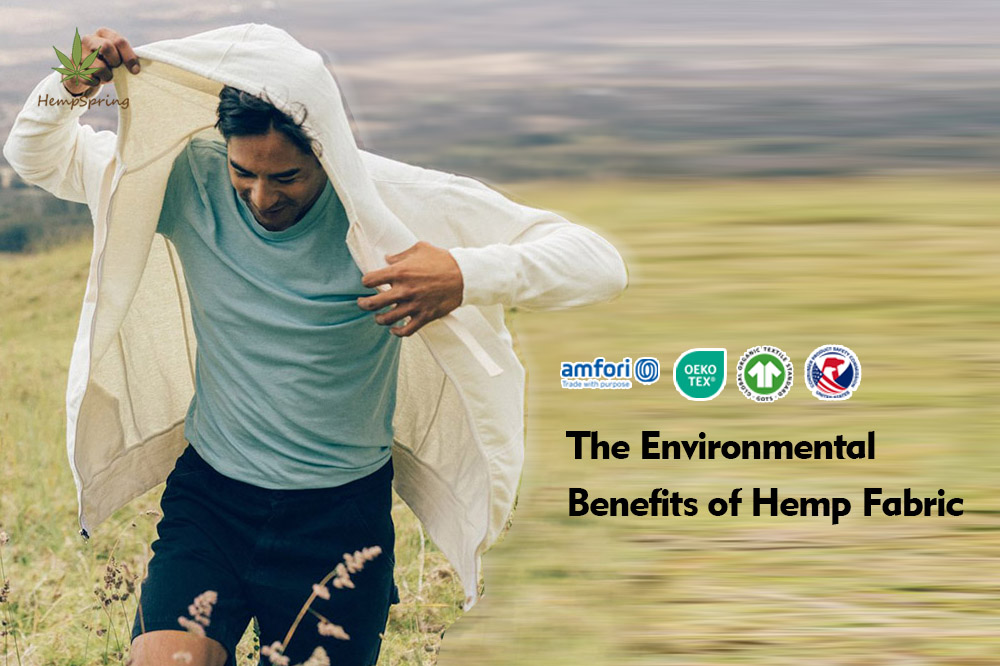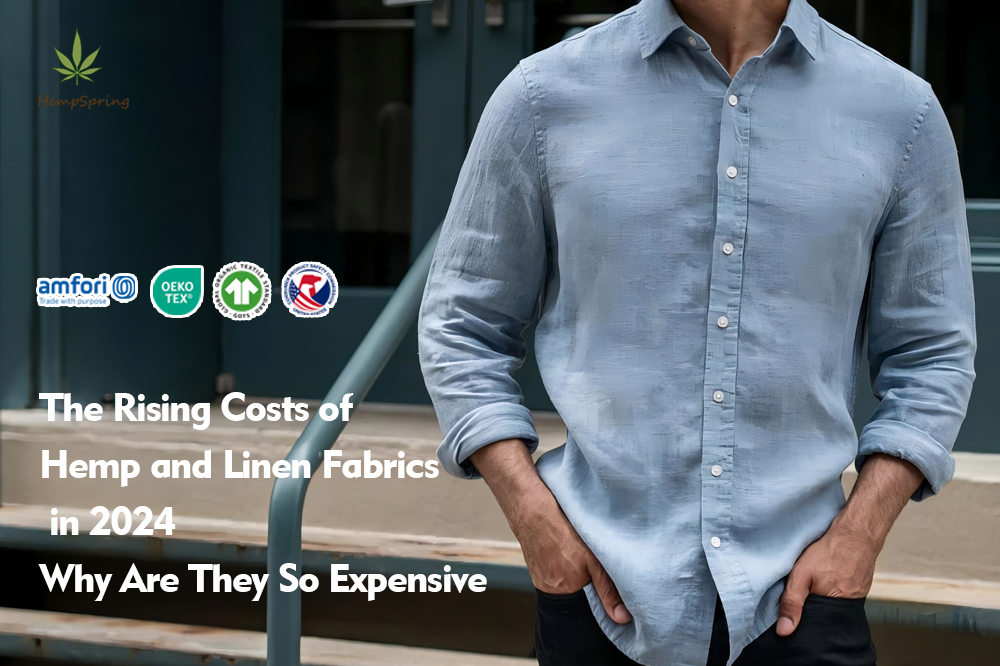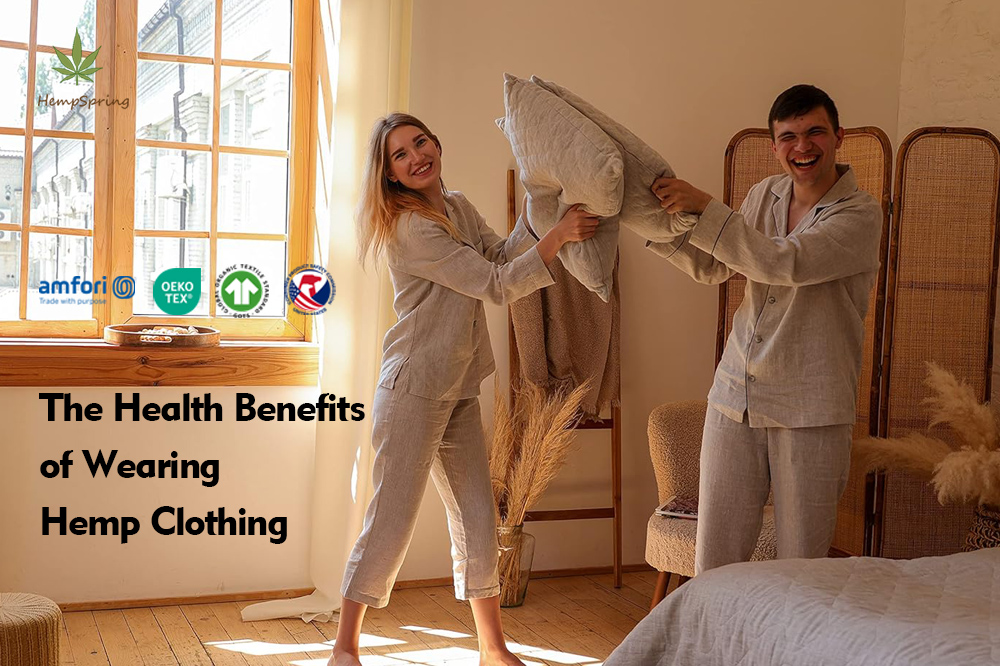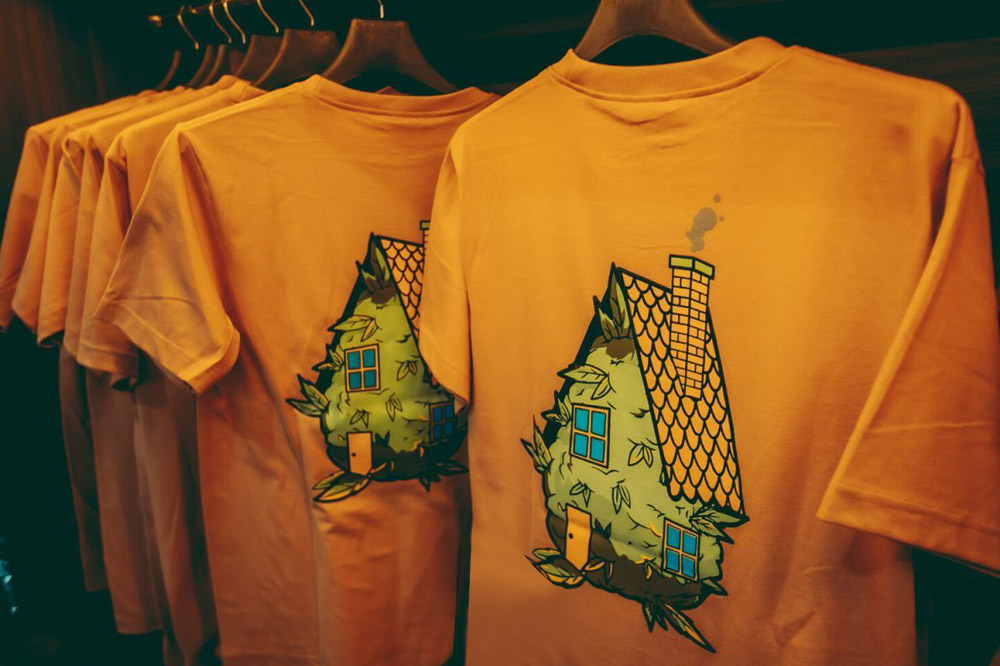Organic hemp fabric is a textile material made from the fibers of the hemp plant (Cannabis sativa) that has been grown and processed using organic farming methods.
Hemp has been used for centuries to create various products, including textiles, and it has gained popularity in recent years due to its sustainability and eco-friendly properties.

Here are some key characteristics and benefits of organic hemp fabric:
1. Sustainability: Hemp is a highly sustainable crop because it grows quickly and requires minimal water, pesticides, and herbicides compared to other fiber crops like cotton. It also enriches the soil it’s grown in, making it an excellent choice for organic farming practices.
2.Strength and Durability: Hemp fibers are known for their strength and durability. Hemp fabric is more robust than many other natural fibers, such as cotton, and becomes softer and more comfortable with each wash while retaining its integrity.
3.Breathability: Hemp fabric is highly breathable, making it comfortable to wear in hot and humid climates. It allows air to circulate, helping to regulate body temperature.
4.Antimicrobial Properties: Hemp has natural antimicrobial properties, which can help reduce odors and bacteria growth, making it an excellent choice for clothing and textiles.
5.Biodegradability: Hemp fabric is biodegradable, meaning it can decompose naturally without causing harm to the environment when disposed of properly.
6. UV Resistance: Hemp fabric has natural UV-resistant properties, offering some protection from harmful sun rays.
7.Hypoallergenic: Hemp fabric is generally hypoallergenic, making it suitable for people with sensitive skin or allergies.
8.Versatility: Organic hemp fabric can be used for various textile products, including clothing, bed linens, towels, and even accessories like bags and hats.
Organic hemp fabric aligns with sustainable and eco-friendly practices, making it a popular choice among environmentally conscious consumers and those looking for durable, comfortable, and breathable textile options.
Here are some trendy brands that use hemp fabrics to make clothing:
When it comes to natural fabrics that most people are familiar with, cotton, bamboo, and hemp are usually involved. The following are the fabric properties of these three fabrics after blending:
Hemp-Cotton Blended Fabric:
Hemp-cotton blended fabric combines the qualities of both hemp and cotton fibers, creating a textile with unique characteristics:
1.Sustainability: Blending hemp with cotton can enhance the sustainability of the fabric. Hemp’s eco-friendly properties, such as requiring less water and pesticides, can offset some of the environmental impact associated with conventional cotton.
2.Strength and Durability: Hemp contributes to the fabric’s durability and strength, making it more robust than pure cotton fabric. It is less prone to wear and tear, which can extend the lifespan of garments made from this blend.
3.Softness: The blend’s texture may vary depending on the ratio of hemp to cotton. Generally, hemp-cotton blends tend to be softer than pure hemp fabric and may become even softer with washing.
4.Breathability: Like both hemp and cotton individually, hemp-cotton blends are breathable, making them suitable for various climates and comfortable for everyday wear.
5.Moisture Absorption: Hemp’s natural moisture-wicking properties can improve the fabric’s ability to keep you dry and comfortable by absorbing and releasing moisture effectively.
6.Versatility: Hemp-cotton blends are versatile and can be used for a wide range of clothing items, from casual wear to bed linens.
Hemp-Bamboo Blended Fabric:
Blending hemp with bamboo fibers creates a textile that combines the strengths of both materials:
1.Sustainability: Hemp and bamboo are both sustainable options. While bamboo can grow rapidly without extensive chemical inputs, blending it with hemp can enhance its environmental friendliness.
2.Strength: Hemp provides strength to the blend, ensuring the fabric’s durability. This makes hemp-bamboo blends suitable for long-lasting garments.
3.Softness: Bamboo is known for its soft and silky feel, which complements the rougher texture of hemp. The resulting blend tends to be soft and comfortable against the skin.
4.Breathability: Hemp-bamboo blends offer excellent breathability, making them suitable for warm weather and active lifestyles. They can wick moisture away from the body, enhancing comfort.
5.Antimicrobial Properties: Bamboo’s natural antimicrobial properties can contribute to odor control, which is beneficial for activewear and undergarments.
6.Biodegradability: Both hemp and bamboo are biodegradable, ensuring that the fabric will break down naturally without harming the environment.
7.UV Resistance: Hemp’s natural UV resistance combines with bamboo’s density to provide some protection against harmful sun rays.
In conclusion, hemp-cotton and hemp-bamboo blended fabrics offer a mix of sustainability, durability, softness, and other desirable properties. The choice between them depends on your specific needs and preferences for clothing and textiles.










